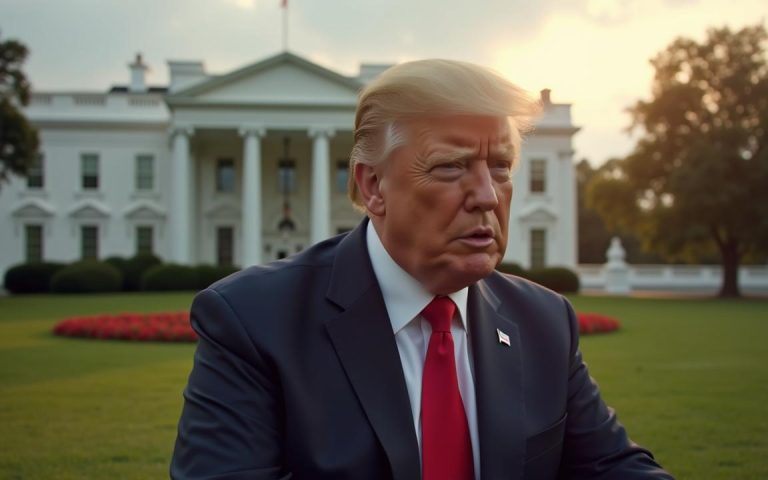US President Donald Trump’s approval rating has declined slightly in recent days as more Americans express concerns about the direction of the economy, according to a Reuters/Ipsos poll.
The six-day survey, which concluded on Tuesday, found that 44% of respondents approved of Trump’s performance, down from 45% in a January 24-26 poll.
The 78-year-old’s approval stood at 47% immediately after his return to the White House on January 20-21.
Disapproval of Trump’s presidency has risen more significantly, climbing to 51% in the latest poll from 41% just after he took office.
The Reuters/Ipsos poll surveyed 4,145 US adults nationwide and has a margin of error of approximately two percentage points in either direction.
Earlier in the month, a CBS News/YouGov poll found that 53% of Americans approve of Trump’s job performance so far, while 47% disapprove.
Additionally, 70% of respondents said Trump is “doing what he promised” during the campaign.
The poll surveyed 2,175 US adults from Feb 5-7, 2025.
Why is Trump’s approval rating going down?
While Trump continues to receive relatively strong support for his immigration policies—47% approve of his approach—public sentiment on the economy has weakened.
The share of Americans who believe the economy is on the wrong track rose to 53%, up from 43% in the previous poll.
Approval of Trump’s handling of the economy fell to 39% from 43%.
Economic concerns remain central to Trump’s political standing. While his 39% approval on the economy is still higher than the 34% rating at the end of Joe Biden’s presidency, it is well below the 53% he held in February 2017, the first full month of his first term.
Inflation remains a particular weak spot, with only 32% of respondents approving of Trump’s performance on the issue.
A recent US Labor Department report showed consumer prices rose at the fastest pace in nearly 1.5 years in January, with Americans facing higher costs across various goods and services.
Verdict on Trump’s tariffs
Other economic data indicates that US households expect inflation to rise following Trump’s February 1 announcement of steep tariffs on imports from China, Mexico, and Canada.
Although Trump delayed tariffs on Mexico and Canada until March, he has set a March 12 start date for duties on imported steel and aluminum and has instructed officials to develop a framework for global reciprocal tariffs.
Trump has also directed his staff to develop global reciprocal tariffs.
Just yesterday, the president announced plans to impose a 25% tariff on automobile imports, along with similar duties on semiconductors and pharmaceutical products.
Trump’s tariff policies remain divisive. While 54% of respondents opposed new tariffs on imported goods, 41% supported them.
Tariffs targeting Chinese goods received slightly more backing, with 49% in favor and 47% against.
The post Trump’s approval rating dips as economic concerns weigh on public sentiment appeared first on Invezz

